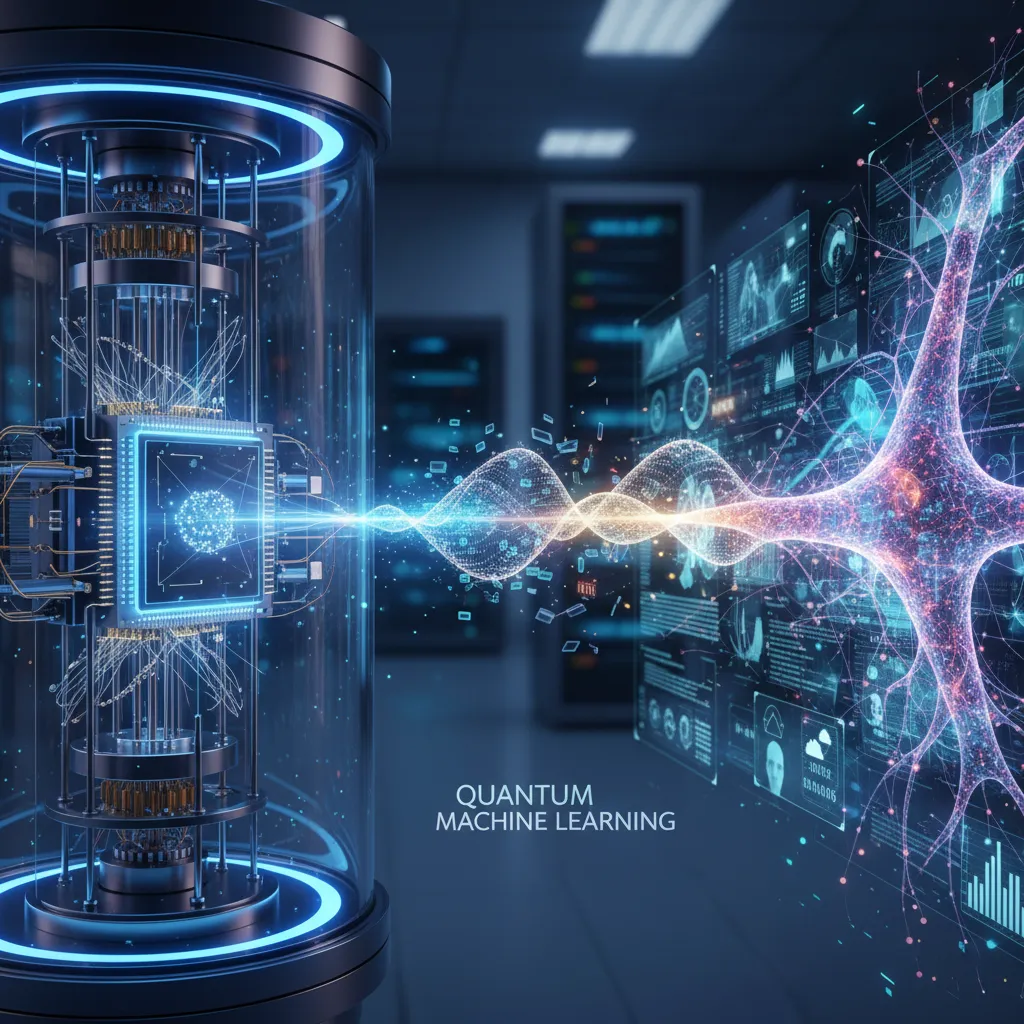Quantum Machine Learning Applications: Unlocking the Future of AI
Quantum computing and machine learning are two of the most transformative technologies of the 21st century. When combined, they form the emerging field of Quantum Machine Learning (QML), which promises to revolutionize industries by solving problems that are currently intractable for classical computers. This article explores the timeline, evolution, and practical applications of QML, from its early theoretical foundations to its futuristic potential in real-world domains.

The Origins of Quantum Machine Learning
The concept of Quantum Machine Learning began as a theoretical exploration in the early 2000s, when researchers started asking how quantum mechanics could accelerate algorithms. At this stage, the focus was primarily on mathematical models and proofs of concept rather than practical applications.
One early example was the idea of using quantum states to represent large datasets more efficiently than classical memory. This theoretical groundwork laid the foundation for future breakthroughs in QML.
Key Milestones
- 2004: Initial papers on quantum-enhanced learning algorithms.
- 2008: Early discussions on quantum support vector machines.
- 2010: Growing interest in hybrid quantum-classical models.
Early Experiments and Proof of Concept
By the 2010s, researchers began conducting small-scale experiments on quantum simulators. These experiments demonstrated that QML could, in theory, outperform classical algorithms in specific tasks such as pattern recognition and optimization.
A notable example was the demonstration of quantum algorithms for clustering, which showed how quantum states could represent multiple data points simultaneously, reducing computational complexity.
Challenges in Early Stages
Hardware Limitations
Quantum computers at the time had very few qubits, making large-scale applications impossible.
Algorithmic Complexity
Many algorithms were too complex to implement on noisy intermediate-scale quantum (NISQ) devices.
The Rise of Hybrid Quantum-Classical Models
As hardware slowly improved, the focus shifted to hybrid models that combined classical machine learning with quantum subroutines. These models allowed researchers to leverage the strengths of both paradigms.
For example, variational quantum circuits were used to optimize parameters in neural networks, while classical computers handled data preprocessing and error correction.
Benefits of Hybrid Models
- Reduced computational overhead.
- Improved scalability with current hardware.
- Flexibility in integrating with existing ML frameworks.
Quantum Machine Learning in Natural Language Processing
One of the most exciting applications of QML is in Natural Language Processing (NLP). Quantum algorithms can potentially handle the vast complexity of human language more efficiently than classical models.
For example, quantum embeddings can represent semantic relationships in high-dimensional spaces, enabling more accurate sentiment analysis, translation, and text generation.
Potential Use Cases
- Quantum-enhanced chatbots for customer service.
- Faster and more accurate machine translation.
- Improved semantic search engines.
Quantum Machine Learning in Healthcare
Healthcare is another domain where QML shows immense promise. Quantum algorithms can analyze complex biological data, such as genomic sequences, much faster than classical systems.
For example, QML can accelerate drug discovery by simulating molecular interactions at the quantum level, something classical computers struggle with.
Applications in Healthcare
- Personalized medicine through genomic analysis.
- Drug discovery and protein folding simulations.
- Predictive diagnostics using quantum-enhanced models.
Quantum Machine Learning in Finance
The financial sector has always been an early adopter of cutting-edge technology. QML offers new ways to optimize portfolios, detect fraud, and predict market trends.
For example, quantum algorithms can process massive datasets of financial transactions to identify anomalies that may indicate fraudulent activity.
Use Cases in Finance
- Risk modeling and portfolio optimization.
- Fraud detection with quantum anomaly detection.
- High-frequency trading strategies.
Quantum Machine Learning in Cybersecurity
Cybersecurity is becoming increasingly complex, and QML provides new tools to defend against evolving threats. Quantum algorithms can enhance encryption, intrusion detection, and threat modeling.
For example, quantum key distribution (QKD) ensures secure communication channels that are theoretically unbreakable by classical computers.
Cybersecurity Applications
- Quantum-enhanced intrusion detection systems.
- Next-generation encryption methods.
- Predictive threat modeling.
Quantum Machine Learning in Climate Science
Climate modeling requires analyzing massive datasets with complex variables. QML can accelerate simulations and improve predictive accuracy.
For example, quantum algorithms can model atmospheric interactions more efficiently, helping scientists predict extreme weather events.
Environmental Applications
- Improved climate change models.
- Optimization of renewable energy grids.
- Faster simulations of carbon capture technologies.
Quantum Machine Learning in Robotics
Robotics relies heavily on machine learning for navigation, perception, and decision-making. QML can enhance these capabilities by providing faster optimization and learning algorithms.
For example, quantum reinforcement learning can help robots adapt to new environments more quickly than classical methods.
Robotics Applications
- Autonomous vehicle navigation.
- Industrial automation with adaptive robots.
- Human-robot collaboration in healthcare and manufacturing.
The Future of Quantum Machine Learning
Looking ahead, QML is expected to become a cornerstone of artificial intelligence. As quantum hardware matures, we will see more practical applications across industries.
For example, fully quantum neural networks may one day surpass classical deep learning models in both speed and accuracy.
Future Directions
- Scalable quantum neural networks.
- Integration with edge computing and IoT.
- Quantum-enhanced AI ethics and governance frameworks.
Conclusion
Quantum Machine Learning is no longer just a theoretical curiosity - it is rapidly evolving into a transformative force across industries. From healthcare to finance, cybersecurity to climate science, the applications of QML are vast and growing. While challenges remain, particularly in hardware scalability and error correction, the trajectory is clear: QML will redefine the boundaries of what is computationally possible. The future of AI is not just machine learning - it is Quantum Machine Learning.











